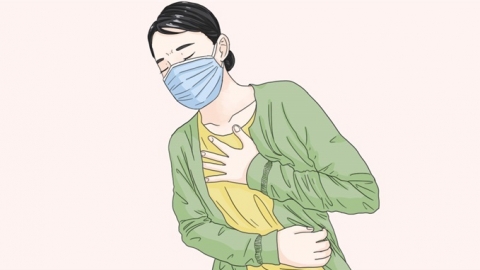Why Mild Pneumonia May Not Cause Fever
Under normal circumstances, the main reasons why mild pneumonia may not cause fever include good personal immunity, limited pathogen invasion range, prior use of anti-inflammatory medications, early stages of viral pneumonia, and mild mycoplasma pneumonia. If discomfort symptoms occur, it is recommended to seek timely diagnosis and treatment at a regular hospital. Detailed analysis is as follows:
1. Good Personal Immunity
Some individuals have strong constitutions, and their immune systems can quickly respond to lung infections without causing an increase in body temperature. It is important to maintain good daily habits, ensure sufficient sleep, and consume foods rich in vitamins and proteins, such as eggs and vegetables, to maintain stable immunity.
2. Limited Pathogen Invasion Range
In mild pneumonia, only a small amount of lung tissue is affected. The number of pathogens reproducing is limited, and the release of inflammatory factors is insufficient to trigger the temperature-regulating center to raise body temperature, thus no fever occurs. Patients should avoid strenuous activities, ensure adequate rest to promote lung recovery, stay warm to prevent colds that could spread the infection, and seek medical attention promptly if symptoms like chest tightness or worsening cough appear.

3. Prior Use of Anti-Inflammatory Medications
Before developing pneumonia, patients may have taken non-steroidal anti-inflammatory drugs such as ibuprofen sustained-release capsules, diclofenac sodium enteric-coated tablets, or naproxen tablets for other inflammatory conditions. These medications' anti-inflammatory and fever-reducing effects may mask the fever symptoms caused by pneumonia. It is important to truthfully inform the doctor about medication history, avoid stopping or changing medications on one's own, and follow medical instructions to adjust treatment plans and manage pneumonia.
4. Early Stage of Viral Pneumonia
Viral pneumonia caused by adenovirus, coronavirus, etc., often presents without fever in the early stages due to low viral replication and mild lung inflammation. Common symptoms include dry cough and fatigue. Under a doctor's guidance, antiviral medications such as ribavirin granules, acyclovir tablets, or ganciclovir capsules may be used. Patients should also rest adequately and avoid cross-infection.
5. Mild Mycoplasma Pneumonia
Mild pneumonia caused by mycoplasma pneumoniae infection typically presents with relatively mild inflammatory responses. Body temperature is usually normal or only slightly elevated, with paroxysmal dry cough as the main symptom. Under a doctor's guidance, macrolide antibiotics such as azithromycin dispersible tablets, roxithromycin capsules, or clarithromycin tablets can be taken according to the prescribed course to eliminate the pathogen.
In daily life, attention should be paid to personal hygiene, frequent handwashing, and avoiding contact with individuals suffering from respiratory infections. Strengthen physical exercise to improve lung function. When persistent coughing, sputum production, or other symptoms occur, timely chest imaging examinations should be conducted for accurate diagnosis and prompt treatment.




